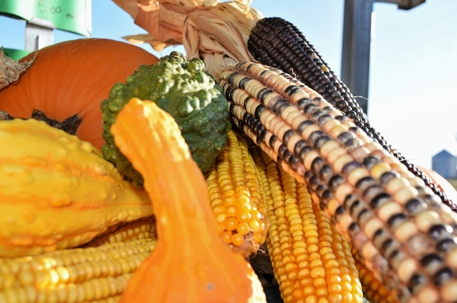The Indiana Department of Revenue recently revised and republished its guidance on sales tax for food items in Bulletins #29 and #45. These updates did not relate to any substantive changes in the way Indiana sales tax applies to transactions involving food but did separate the guidance for vending machine foods in a separate bulletin. Below is a brief guide on the rules for the taxability of food items in Indiana with reminders for grocery stores and restaurants on key practices to consider in managing their sales tax obligations.
How to Determine if a Grocery Food Item Is Taxable or Exempt in Indiana
Food and food ingredients are generally exempt from sales tax under Indiana Code Section 6-2.5-5-20. This includes most items you’d find at a grocery store in addition to unheated foods and baked goods. However, Indiana has several exceptions to this exemption, meaning the following foods and related goods are taxable:
- Candy (IC Section 6-2.5-1-12)
- Alcoholic beverages (IC Section 6-2.5-1-11)
- Soft drinks (IC Section 6-2.5-1-26)
- Heated food
- Prepared food (i.e., two or more food ingredients mixed and combined for sale)
- Food sold with eating utensils
- Tobacco (IC Section 6-2.5-1-28)
- Dietary supplements (IC Section 6-2.5-1-16)
Despite this guidance, you may still have a difficult time properly categorizing unique or novel food items that do not clearly fit an exempt or taxable category. You may be able to find additional guidance from the Indiana Department of Revenue through Appendix A of Bulletin #29 (August 2023). For example, Appendix A details the difference in taxability between comparable items such as baking chocolate (exempt) and chocolate chips (taxable as candy).
Indiana’s Rules for Sales Tax on Exempt Foods Sold in Complex Transactions
The nature of the food you’re selling is the primary factor in determining its taxability in Indiana. However, additional situations and circumstances can alter the taxability, such as the type of business selling the food, or the items sold with it.
Combination Businesses
In Indiana, one of the more complex sales tax scenarios is unprepared food sold with utensils. The taxability can shift depending on the business’s classification as a restaurant or a combination business under Appendix B of Bulletin #29, such as a grocery store with a deli.
If 75 percent or more of the business’s sales are prepared food, then it is a restaurant. This means food items sold as ready for human consumption are subject to tax because they are served with utensils. These can be items that would otherwise be exempt if sold at a grocery store. For example, salads, fruits, and potato chips. A business with less than 75 percent of prepared food sales is a combination business. Sales of exempt food only become taxable for a combination business if the customer is handed utensils, even if indirectly through placement in a bag.
Bundled Transactions
A similar methodology applies to bundled transactions as explained in Bulletin #94 (March 2023). These are transactions of two or more distinct items sold for one price. If the bundled transaction involves an exempt food item that is 50 percent or less of the total purchase price, the entire transaction is subject to sales tax. However, items sold with separate sale prices but in one transaction (i.e., unitary transactions) only require sales tax on the individual items subject to it. In other words, exempt food items in a unitary transaction would not be subject to tax.
Bulletin #45: Indiana Sales Tax for Food Sold in a Vending Machine or Comparable Unit
The Indiana Department of Revenue clarifies its rules for food sold through a vending machine in Bulletin #45 (April 2023). The taxability of food does not change because it is sold through a vending machine. Exempt items such as water are not taxable, while candy or sodas would be taxable. However, owners of a vending machine must post a sign indicating that the prices of items include sales tax. The Department of Revenue assumes that vending machines without this sign are not inclusive of sales tax, which makes the owner liable for the uncollected amount.
A Local Food and Beverage Tax Could Also Apply to Your Sales in Indiana
Beyond state sales and use tax, a local food and beverage (FAB) tax could apply to your sales of food in certain counties or cities in Indiana. The FAB tax applies to food and beverage sold for consumption at the retailer’s location or prepared on equipment provided by the retailer. The tax rate in applicable localities is one percent except for sales in Orange County or Marion County, which apply a two percent FAB tax rate.
Getting Help with an Indiana Sales Tax Audit or Assessment as a Food Business
Food and beverage continue to be one of the most difficult industries for sales tax compliance because of unique rules that can vary from state to state. Challenges with misclassification and under-collecting sales tax can be a real concern for combination businesses in Indiana and other places that sell a variety of taxable and exempt food items, such as gas stations and convenience stores. If you or your clients are facing an Indiana sales tax audit or assessment in the food and beverage industry, consider a consultation with our team of professionals. We provide audit defense and representation in the administrative appeal of assessments to help clients mitigate their tax liability where possible and only pay what they owe.

